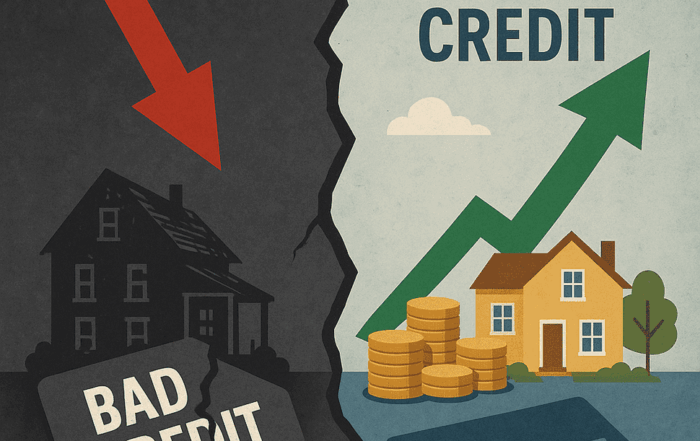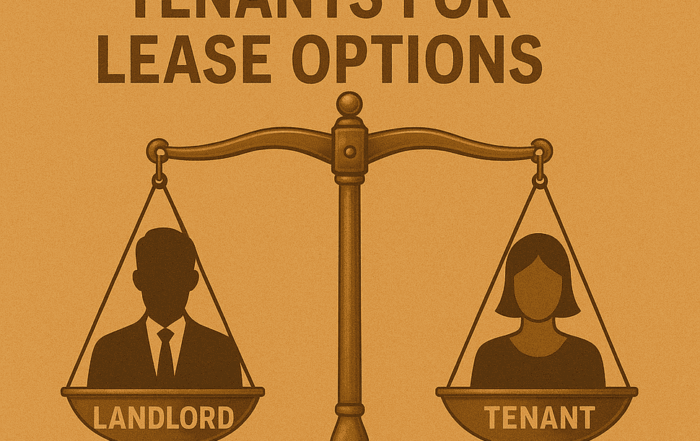
Comprehensive Guide to Key Real Estate Valuation Terminologies: CMA, Desktop Appraisal, BPO, and RPR – What Real Estate Investors Need to Know
In the complex world of real estate investing, understanding various property valuation methods is crucial for making sound investment decisions. Whether you’re a seasoned investor or a beginner, terms like CMA, Desktop Appraisal, BPO, and RPR can significantly impact your strategies and outcomes. This article will explore these key valuation terminologies, their importance to real estate investors, and when they are typically used.
Focus Keyphrase: Real Estate Valuation Terminologies for Investors
CMA (Comparative Market Analysis) is a method used by real estate professionals to estimate the value of a property by comparing it to similar properties that have recently sold in the same area. CMAs are commonly used by real estate agents to help sellers set listing prices and by investors to assess potential purchase prices.
Importance of CMA for Real Estate Investors
For real estate investors, a CMA is a vital tool for evaluating potential investment properties. It provides a snapshot of the current market, showing how a property’s value compares to others in the area. This information is crucial when determining an offer price or setting a resale price after renovations.
How CMA Relates to Real Estate Valuation
A CMA helps investors understand the local market dynamics and make informed decisions about what to pay for a property. By analyzing recent sales data, investors can gauge whether a property is likely to appreciate or if it’s being overvalued. This analysis is particularly important in competitive markets like Tampa Bay, where small differences in property features can significantly affect value.
When CMAs Are Used by Investors
- Offer Price Determination: Before making an offer on a property, investors use a CMA to assess whether the asking price is in line with the market. This analysis is especially useful in competitive markets like Tampa, where understanding current market trends can make or break a deal.
- Flip or Sell Strategies: Investors who focus on property flips often rely on CMAs to determine the potential resale value of a property after renovations. A well-prepared CMA can help investors set a competitive asking price that maximizes their return on investment.
- Market Entry Evaluation: For investors entering a new market, CMAs provide a baseline understanding of property values and market conditions, helping them avoid overpaying.
Desktop Appraisal
Desktop Appraisal is a type of property valuation where the appraiser does not physically visit the property. Instead, they use available data such as public records, MLS (Multiple Listing Service) listings, and other online resources to estimate the property’s value.
Importance of Desktop Appraisal for Real Estate Investors
Desktop appraisals are particularly valuable for real estate investors who need quick and cost-effective valuations. They are often used during the initial stages of investment analysis, refinancing, or when considering multiple properties simultaneously. For example, an investor looking to purchase several rental properties in Tampa may use desktop appraisals to quickly evaluate each property’s potential before deciding which ones to pursue further.
When Desktop Appraisals Are Used by Investors
- Preliminary Investment Analysis: Desktop appraisals provide a quick estimate of a property’s value, helping investors determine if it’s worth pursuing further.
- Refinancing: Many lenders accept desktop appraisals for refinancing purposes, especially if the property has been appraised recently.
- Portfolio Management: Investors managing multiple properties can use desktop appraisals to monitor changes in property values and adjust their strategies accordingly.
Limitations and Considerations
While desktop appraisals are convenient, they may not be as accurate as traditional appraisals because they lack the insight gained from a physical inspection. This limitation can be particularly important in markets with diverse property conditions, like Tampa, where two homes on the same street could have vastly different valuations due to their unique features or conditions.
BPO (Broker Price Opinion)
BPO (Broker Price Opinion) is an estimate of a property’s value provided by a real estate broker or agent. BPOs are commonly used as a more affordable alternative to full appraisals, particularly in situations where a quick and informal valuation is needed.
Importance of BPO for Real Estate Investors
BPOs are invaluable tools for investors, especially those involved in distressed properties, foreclosures, or short sales. They provide a fast, cost-effective way to gauge a property’s market value, which is critical when making time-sensitive investment decisions.
When BPOs Are Used by Investors
- Short Sales and Foreclosures: BPOs are often used to determine the list price for short sales or foreclosed properties. Lenders rely on BPOs to set a price that is competitive yet reflective of the property’s condition and market conditions.
- Initial Property Evaluation: Investors often use BPOs when they need a quick valuation to decide whether to pursue a property further. For example, an investor might request a BPO to determine the potential profitability of flipping a distressed property in Tampa.
- Private Lending: Many private lenders accept BPOs instead of formal appraisals, particularly for smaller loans or when the investment is secured by multiple properties.
Examples of Lender Preferences
- Private Lenders: Private lenders, who typically offer more flexible terms, are often willing to accept BPOs or Comparative Market Analyses (CMAs) instead of formal appraisals. This flexibility is beneficial for investors who need to secure financing quickly without the time and expense associated with a full appraisal.
- DSCR Lenders: Debt Service Coverage Ratio (DSCR) lenders, on the other hand, usually require full appraisals. DSCR loans, which are common in commercial real estate investing, focus on the income-generating potential of a property. As such, these lenders prefer the detailed analysis provided by a full appraisal to ensure that the property’s income can sufficiently cover the loan payments.
RPR (Realtors Property Resource)
RPR (Realtors Property Resource) is a comprehensive real estate database and valuation tool used by real estate professionals to access detailed property information and market data. It is exclusively available to members of the National Association of Realtors (NAR) and provides a wealth of data that can be used for property valuation, market analysis, and investment decisions.
Importance of RPR for Real Estate Investors
RPR is an essential tool for investors who need access to accurate and up-to-date property data. It allows investors to evaluate properties based on a wide range of factors, including recent sales, tax assessments, zoning information, and neighborhood demographics. RPR’s advanced analytics and reports help investors make more informed decisions about where and when to invest.
How RPR Relates to Real Estate Valuation
RPR offers a detailed analysis of a property’s value based on a combination of public records, MLS data, and proprietary algorithms. Investors can use RPR to conduct in-depth market analysis, identify trends, and compare properties. This level of detail is particularly useful in markets like Tampa Bay, where understanding the nuances of local property values can lead to more profitable investments.
When RPR Is Used by Investors
- Property Research: Investors use RPR to gather comprehensive information about a property before making an investment decision. This includes checking for any legal or zoning issues, understanding the property’s history, and assessing its potential for appreciation.
- Market Analysis: RPR’s market analysis tools help investors identify emerging trends and opportunities in specific neighborhoods or regions. This is particularly valuable for investors looking to enter new markets or expand their portfolios.
- Valuation Reports: RPR provides detailed valuation reports that investors can use to negotiate better deals, secure financing, or plan renovations. These reports are highly regarded by lenders and other real estate professionals.
Examples of Lender Preferences
- Institutional Lenders: Many institutional lenders trust RPR reports for property valuation, especially when used in conjunction with other appraisal methods. The comprehensive nature of RPR data ensures that lenders have a clear understanding of the property’s value.
- Private Investors: Private investors often rely on RPR to validate their own research and to present data-backed valuation reports when seeking financing from private lenders or partners.
Conclusion
Understanding the various valuation terminologies used in real estate is essential for investors at all levels. Whether you are using a CMA to assess market value, relying on a Desktop Appraisal for a quick estimate, obtaining a BPO for a cost-effective valuation, or leveraging RPR for in-depth property analysis, each of these tools plays a vital role in the real estate investment process. By familiarizing yourself with these terms, you can enhance your ability to navigate the complex world of real estate and make more informed decisions that will ultimately lead to greater success.
How I Went from Losing 22 Properties to Perfect Credit, 40 Properties, and $500K+ in Credit Lines
How I Went from Losing 22 Properties to Perfect Credit, 40 Properties, and $500K+ in Credit Lines Let’s rewind to 2007. The market crashed, the music stopped, and I lost [...]
How I Qualified Tenants for Lease Options in 2005 (And Why It Still Works in 2025)
How I Qualified Tenants for Lease Options in 2005 (And Why It Still Works in 2025) Let’s rewind to 2005. I was sitting in my small Tampa office. Deals were flowing, the market was [...]
Real Estate Investment Analysis: The Skill Every Investor Needs to Master
Real Estate Investment Analysis: The Skill Every Investor Needs to Master Let’s rewind 20 years. Back when I first started in real estate investing, there were no online calculators, no plug-and-play apps, and certainly [...]
How I Closed Two Subject-To Deals Using Almost No Cash
How You Closed Two Subject-To Deals Without a Bank, a Credit Pull, or a Stack of Cash Focus keyphrase: how to convince a seller to do subject to SEO title: How to Convince a [...]
FOR IMMEDIATE RELEASE Graystone CEO Jorge Vazquez Shares Raw Stories and Proven Strategies on “Humans of Growth” Podcast
FOR IMMEDIATE RELEASE Graystone CEO Jorge Vazquez Shares Raw Stories and Proven Strategies on “Humans of Growth” Podcast Tampa, FL — In a bold and unfiltered interview with Aly Hathcock, host of the Humans [...]
“I’m No Crypto Expert, But…”: How I Turned Rent Money Into Bitcoin—and Why It Might Matter in Real Estate Now
“I’m No Crypto Expert, But…”: How I Turned Rent Money Into Bitcoin—and Why It Might Matter in Real Estate Now So here’s the truth: I’m not a crypto expert. Never claimed to be. I’m [...]
Pick your expert. Book your free 15-minute consult now. We are here to help!
Our Top Articles
How I Went from Losing 22 Properties to Perfect Credit, 40 Properties, and $500K+ in Credit Lines
How I Went from Losing 22 Properties to Perfect Credit, 40 Properties, and $500K+ in [...]
How I Qualified Tenants for Lease Options in 2005 (And Why It Still Works in 2025)
How I Qualified Tenants for Lease Options in 2005 (And Why It Still Works in 2025) Let’s rewind to [...]
Real Estate Investment Analysis: The Skill Every Investor Needs to Master
Real Estate Investment Analysis: The Skill Every Investor Needs to Master Let’s rewind 20 years. Back when I first [...]
Property Profit Academy:
✔ Learn to buy properties with little to no money down.
✔ Build a $10M portfolio step by step.
✔ Master strategies like BRRRR and house hacking.












